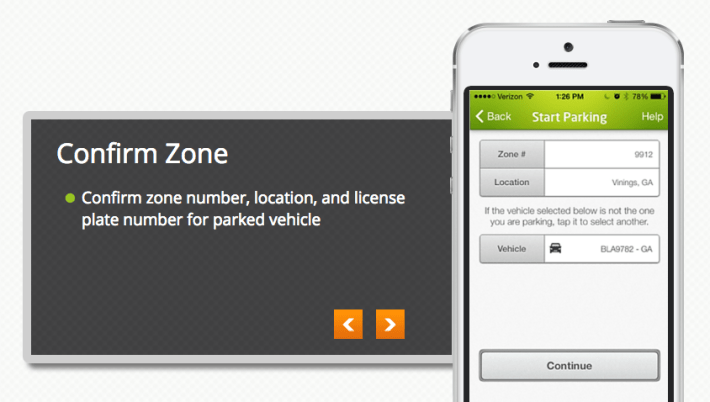Last week, Mayor de Blasio and DOT Commissioner Polly Trottenberg announced the implementation of a new payment option for all of the city's 85,000 metered parking spaces. By the end of the year, people will be able to pay for parking using a mobile app.

Mobile payment is a lot more convenient for drivers than Muni meters and paper receipts. On its own, however, it can't change the fact that most metered spots are underpriced, which makes it hard for drivers to find open spots and causes a significant share of traffic in commercial districts. The big promise of mobile payment is that can be the spoonful of sugar that helps dynamic meter pricing go down.
Will mobile payment be rolled out at the same time as expansions of Park Smart, DOT's dynamic meter pricing program? DOT hasn't tied the two together yet, but the agency did tell Streetsblog that this year, it "will be collecting parking metrics in neighborhoods across the city to build parking profiles which may influence changes that NYC DOT may make in the near future to parking rates and regulation."
As for how mobile payment will work, the city's statement last week said that it would be implemented with "no budget impact" thanks to a previously announced NYPD technology update funding the tablet devices needed for enforcement and a "no-cost innovation contract" with the software developer.
According to a DOT spokesperson, the "likely contractor" is Parkmobile. The company’s service, which has been used by municipalities across Europe and North America, enables payment by drivers who register their license plate number and credit card by mobile app or by dialing a 1-800 number. It does not display open parking spots, so drivers won't be checking Parkmobile on their phones while hunting for a space.
One worry is that mobile payment could be used to tamper with meter pricing. City Council Transportation Committee Chair Ydanis Rodriguez has a bill (Intro. 999), for instance, that would allow drivers to exchange parking time with each another. DOT said mobile payment won't work that way: “Each driver starts and stops the parking session and pay for time used, it will not give them the option to exchange leftover time with one another.”





